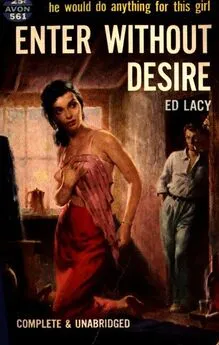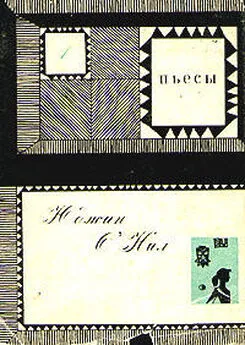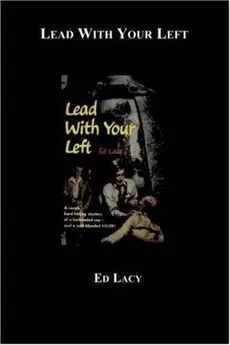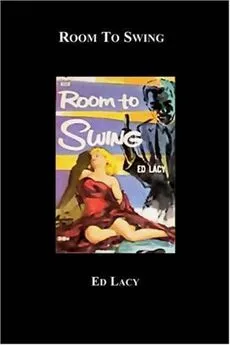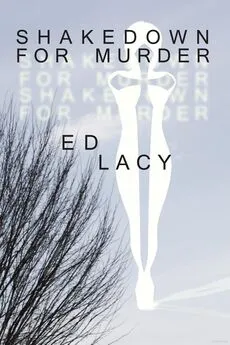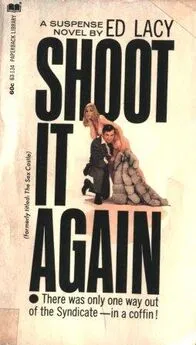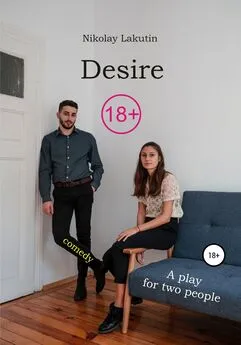Ed Lacy - Enter Without Desire
- Название:Enter Without Desire
- Автор:
- Жанр:
- Издательство:неизвестно
- Год:неизвестен
- ISBN:нет данных
- Рейтинг:
- Избранное:Добавить в избранное
-
Отзывы:
-
Ваша оценка:
Ed Lacy - Enter Without Desire краткое содержание
Enter Without Desire - читать онлайн бесплатно полную версию (весь текст целиком)
Интервал:
Закладка:
I spent a lot of time at Sid's place, sometimes making a pest of myself. I mean, after all, they only had a two-room place. And if I didn't come home till early morning, or stayed out all night, Mary J. never complained, and that made me feel like a heel. Sometimes I'd try to be a good husband to her, but no dice. I always had this restless feeling, as though waiting for something to happen. And seeing the headlines didn't make me feel any better. Seemed to me the war had been a waste of time, the Nazis were being released as though killing of thousands of people had been as dangerous as passing a red light. Everything had been a waste of time, so far, especially my life.
I got a sudden desire to go home and, to my surprise, Mary thought that was a good idea, and when I got my vacation, I went back to Kentucky.
My answer wasn't there.
Somehow I expected a big change, but nothing had changed, it was like stepping back into my life. Mom looked the same, as if she had grown as old as she ever would while she was young. Pop still looked as though a light breeze would carry him off. I had a new sister who was five years old, the mill was still the mill. Home was still a shack—a shack with a radio and electric toaster and even an electric heater. My oldest brother had left part of his toes in the cold of Dutch Harbor, and another brother had decided to stay in the army and was in Japan.
I was still glad to get away from home.
When I returned to New York, Sid told me he had heard from a friend in Paris that Bonard had died. That was a shock, a kick in the heart. The death of this old wino, this great liar, really upset me. Over a brace of drinks I took stock of one Marshal Jameson and the inventory wasn't much. Bonard's death made me realize life was rushing by and I was still not doing anything I wanted to, cared about. I was getting past the “young man” stage and it was about time I stopped being a bum.
I staggered home about three in the morning, sat on the bed and awoke Mary, told her, “Baby, this is all cockeyed—been wrong from the start. No sense holding on to a vacuum. I want out.”
“You mean, we should separate?”
“That's it.”
“Will you give me a divorce?”
“Of course. That's the best thing I can give you.”
“Marsh,” she asked slowly. “Are you sure it won't... hurt you?”
“Be good medicine for the both of us. When do you want to see a lawyer, get this going and...?”
“Tomorrow.”
Mary must have seen the surprise on my face. I'd expected a lot of hysterics and screaming, and oddly enough, Mary Jane was still so helpless, I couldn't bring myself to hurt her.
Now she said, her voice low and clear in the still room, “I know we haven't been happy. But I didn't want to be the one to bring things to a head. I knew you'd been through a lot in the war and I felt...”
“Stop it, I wasn't a hero. The war was a breeze for me.”
“Marsh, are you sure you can make out okay—alone? I owe you that, at least.”
“Don't worry about me. God, you don't owe me anything. I'm the one who owes. What will you do?”
“I'll see a lawyer in the morning. I think you should sleep on the couch from now on.”
“Sure. You can have the apartment, everything we have. And thanks for taking all this so... bravely.”
“Marsh, this is as good a time as any to tell you. And I meant to tell you, no sneaky stuff, understand. I met a guy during the war. Alfred...”
“What?”
“Don't be angry, I was all alone and worried and... well, there was Alfred. I still see him. He wants to marry me. He's a mechanic, got his own garage now in Jamaica. I would have told you sooner, but at first you were just back from overseas and I couldn't tell you, and then you seemed so... so... upset, I didn't want to do anything to... make you sick. Marsh, I know it was wrong to...”
“It wasn't wrong. What we were doing was the wrong thing—all this pretending. Marry this Alfred, Mary. Have a houseful of kids and be happy,” I said, getting up.
“Marsh, you really don't mind?”
“Everything's all right.” And that night I slept on the couch and pounded my ear like I was drugged, the best sleep I'd had in years.
Four months later Mary got her final decree and remarried. Alfred was a stocky, plodding-type, joker about thirty-five, and rather handsome, even with a bald dome.
At one of Sid's parties I'd met a Mexican girl, Ofelia, who had ideas about making marionettes and going on TV. She had a good singing voice, wasn't a bad actress. I was to make the marionettes. Ofelia was exciting in a sort of nervous way—I never knew what she'd do next. She had a furious temper and was always biting me. The second time I saw her we ended up between the sheets, and she was nervous there, too. She agreed to be the corespondent in our divorce, and we even thought it was rather clever to go to Mary Jane's wedding, where Ofelia was the center of attraction, by dint of passing out.
I gave up my real estate job and moved into a loft Ofelia had made over into an apartment, without much success. I spent all my time experimenting with marionettes, and couldn't make them. They either looked awful, were out of proportion, or didn't work. Ofelia and I began screaming at each other about money, borrowing from all our friends. Finally we were busted and we both got jobs in a factory, and Ofelia started seeing a psycho-analyst, who advised her to get the hell away from me.
I found a crummy room and was bored by factory work. I decided there wasn't any sense in letting the G.I. Bill go to waste, so I enrolled at N.Y.U. to get my degree. I managed to finish a year, but living on $75 a month was tough, and I always had the feeling college was unreal—a time killer. Somehow it was silly for a guy of twenty-eight to be acting like a school-boy. And what good would a B.A. do me?
I tried to change to art school, which made more sense, but they were filled up. So I stayed at school and thought about starting with clay again, but never got past the thinking stage. For one thing I couldn't spare the extra bucks. I tried not to hang around Sid's too much. Sometimes I saw Kimball, mainly when I wanted a decent meal. Kimball was okay, she'd even give me a ten spot when I looked too beat—without a pep talk.
During the following summer I decided to take a vacation from school, meaning no more subsistence money. I got Kimball to buy me a few shirts and took a job as a temporary salesman in one of the big department stores. The place was air-cooled, and not a bad way to spend the summer. I stole paints and brushes from the art counter and did some work.
Sid had bought this shack out at Sandyhook and when I went out there for a week-end, I fell in love with the place. It was a real artists' colony, even had a natural red-clay pit and the clay could be used, if you kept wetting it. There was a beach within walking distance, fine fishing and swimming, and at night a lot of characters anxious to drink and shoot the breeze.
That week-end made me snap out of my daze. I decided I was going to be a sculptor, no matter if I starved. I wasn't eating too regularly anyway. Sculpting was the one thing in life I wanted to do and I was going to give myself a crack at it, stop drifting around. Sid was leaving the place in September and when I asked if I could stay there, he said, “You're welcome to it, Marsh, only... be rough. No heat or hot water. I don't even know if they keep the electricity on in these shacks during the winter.”
“I'll manage. I figure I can live on a buck a day. I want to try it for six months. Save like crazy during the summer, maybe get a night job, too. Then I'll go back to school for a month, get that $75 check. If I can start out with about $250—I'll be in.”—
I got an evening job as a bus boy, which meant I didn't have to pay for my meals. The summer passed in a haze of work, sweating, penny-pinching, and little sleep. But I enjoyed it, I was happy, I was working towards something, had a goal, a purpose. During September I managed to hold on to my two jobs and enroll at college—cutting most of my classes, so that when I went out to Sandyhook the first week in October I had nearly $300.
I spent over seventy bucks for a small oil heater, a hot plate, lead pipes for armatures—to support the figures I'd make, wire, cutters, proportional calipers, and other tools, along with a book on anatomy and a plaster female figure for study.
October was a mild month and I dug up pails of clay and went to work. I was pushing myself, trying to knock out a major work in my first attempt... with the result I developed a very trite idea. I tried doing a small tableau to be called, Mankind, which would have as a base a woman on her stomach and trying to get up, and a man stepping on her back, then part of a leg and a high-heeled slipper on his back—with a section of a man's foot on the knee of this leg. Sure, it was obvious, a corny piece of cynicism, but for some reason I liked the idea and worked hard at it. Didn't bother with sketches or models, just started working on what I was certain would be a “masterpiece.”
October was a good month. I caught up on all the sleep I'd missed during the summer by not getting up till noon. I'd work all afternoon—long as the light held—then go down to the beach for surf casting. Evenings I'd listen to the radio, read, or drop in on the Alvins.
Tony and Alice Alvins were local people who had been influenced by the summer invasion of artists. Tony started doing some bad water-color abstractions, while Alice turned writer and, after doing a trashy novel, she threw it away and started a long book about the Long Island Indians— which was rather good, in spots. They had a comfortable all-year-round house and Tony worked at the Grumman Aircraft factory and made a good salary.
I guess they were glad to have me around: Sandyhook is pretty isolated and lonely in the winter. I'd drop in and bull with them about art, Paris, the Village, and the world in general. Tony had been a combat man, had a Purple Heart, and we often talked about the European towns we'd both been in.
It got so I'd barge in without ringing their bell, get a beer out of the icebox, thumb through their newspapers and magazines, even read Alice's novel over her shoulder as she typed. I'd bring them fish, and sometimes a bottle of rye.
There's such a thing as being too intimate and two petty things came up that ruined our friendship—for me, at least. One day when I was in their house and Alice was out shopping and Tony at work, I was searching through his desk for a pipe cleaner, when I came upon a Luger in one of the drawers. I admired the deadly beauty of the gun, left it where I'd found it. Later, when I casually mentioned it to Tony, he got angry, snapped, “Thought I had that hidden away. Don't see why you had to snoop around and...”
“Sorry. I wasn't snooping,” I said, stiffly. “Well, I don't like people to know about me having a gun.”
“I certainly won't go around blabbing about it I know it's against the law and...”
“I have a permit,” Tony said. “It's... the gun brings back a lot of unpleasant memories. I took it off a dead Nazi—guy I killed. The point is I might have captured the guy alive, but it was in my first combat and I was trigger-souvenir-happy... Well, forget it. Gun means things to me other people can't understand and... Just forget it.”
“Sure, I never saw it,” I said, still angry.
Several weeks later we were sitting around the table after I had helped them put away a duck supper and Alice was talking about the summer colony—some of the people had sent her cards from Mexico. She said, “They have money to travel, but out here they're nothing but spongers. They'll eat you out of house and home and never even think about reciprocating.”
Читать дальшеИнтервал:
Закладка:
